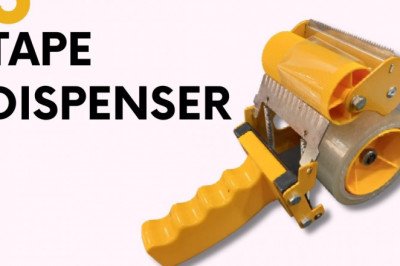views
The Investment foundry Handbook provides mold air permeability versus temperature for the three binders. Today, I want to talk to you about the air permeability of foundry parts shells.
The air permeability of the foundry part shell is the best at low temperature. As the temperature increases, the air permeability of the mold shell is continuously decreasing, and the air permeability of the mold shell is continuously rising after it reaches a valley bottom. In fact, the above conclusion is obtained through the table tennis experiment.
Because in this experiment, the ping-pong test shell was tested after being fired. The sample (fully dried) that had been parked for two days was put into the roasting furnace, and the temperature was raised to 180°C at a heating rate of 8°C/min. Keep warm until the table tennis ball is completely vaporized. Subsequently, the temperature was rapidly increased at 15-18 °C/min to the calcination temperature: ethyl silicate shell and silica sol shell were held at 950 °C for 1.5 h; water glass shell was held at 850 °C for 1 h. After cooling in the furnace, take out the sample for testing.
So, can it be concluded that the air permeability of the shell of the fully fired cast part is the best? Or conversely, the better the air permeability of the cast part shell, the more fully the shell is fired? I feel that it is up for debate. Some people will think, since the more sufficient the baking is, the better the air permeability of the mold shell, why should the second baking of the mold shell of the cast parts not be more sufficient? Why does air permeability decrease? In fact, in the above experiments, the viscous effect of temperature on gas flow was not taken into account at first.

In fact, the higher the temperature, the higher the flow viscosity of the gas (this is inconsistent with the liquid), the resistance of the gas flow will also increase, and the permeability of the shell will become worse. In fact, the temperature increases the viscosity of the gas, which is different from the type The air permeability of the shell does not matter or the air permeability of the shell does not change at all. If we think that as the temperature rises, the air permeability of the shell becomes worse, this is not true. However, as the temperature rises and the gas becomes viscous, the superimposed result of the two is that the high temperature air permeability of the shell decreases.
Also, we have to figure out all the factors that affect shell breath ability to really understand what determines shell breath ability. In fact, the permeability of the shell of the cast part mainly depends on the compactness of the shell structure, or the ratio of the porosity on the shell wall. The properties of binder, refractory materials (including refractory powder and refractory aggregate), shell making process and baking process are the main factors affecting the permeability of foundry parts shell. For example: powder-to-liquid ratio, physical properties of silica sol, physical properties of refractory materials, number of shell layers, shell making process and roasting process, etc., so roasting is only a factor that determines the permeability of the shell of foundry parts, and roasting alone can Sufficiently, it is impossible to guarantee the best air permeability of the shell. It can only be said that when other factors of the shell are fixed, the more sufficient the firing, the better the permeability of the shell.
Of course, the above opinions are only personal opinions. If there is something wrong, criticism and correction are welcome. In addition, the air permeability of the shell is also an invisible and intangible thing, and it is difficult to have a specific measure.
The above is the discussion on the permeability of the shell of precision foundry parts, I hope it will be helpful to everyone. PARFECT STEEL provides joint development and one-stop customized service from mold manufacturing to precision foundry production, and is committed to providing high-quality precision foundry for high-end manufacturing at home and abroad.












Comments
0 comment